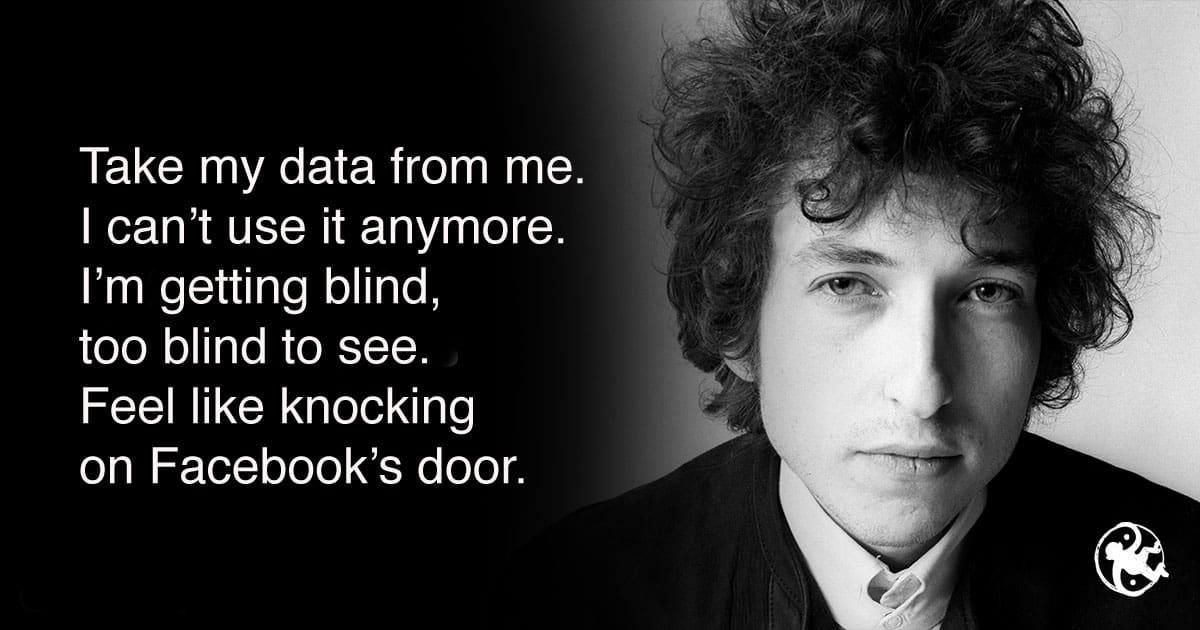
I don’t need this monkey mask anyway.
In the digital age, the act of “Knocking on Facebook’s Door” represents a deliberate choice to engage with social media platforms, often at the cost of personal privacy. Your statement, “If Facebook wants my data, Facebook can HAVE my data. I don’t need this monkey mask anyway,” captures a moment of resignation or perhaps defiance. It suggests a readiness to part with the guise of anonymity or privacy—the “monkey mask”—in exchange for the benefits and conveniences provided by the platform.
This scenario opens up a broader conversation about the trade-offs between privacy and connectivity. Social media platforms like Facebook operate on the currency of data—every interaction, click, and like contributes to a vast reservoir of information that shapes how these platforms evolve and how they serve us. By removing the “monkey mask,” you are acknowledging the implicit contract of transparency (or exposure) that comes with these services.
In embracing this exchange, there’s an acceptance of the dual role users play—as both consumers and products. This relationship with social media is complex, reflecting our desire for connection and recognition alongside our struggles with visibility and control. The decision to give up data and privacy is not without its consequences, shaping not only personal experiences but also broader societal norms and expectations about privacy.
























“Knocking on Facebook’s Door” reflects a sentiment of weariness and a desire for privacy in the digital age. The passage conveys a sense of disillusionment and a longing to regain control over personal data that is being collected and used by platforms like Facebook.
The reference to Bob Dylan and the lyrics “Feel like knocking on Facebook’s door” evoke a spirit of protest and a call for change. It suggests a desire to confront the powerful entities that harvest and exploit personal information for their own gain.
The statement “If Facebook wants my data, Facebook can HAVE my data” highlights a sense of resignation or acceptance, indicating that the author recognizes the pervasive nature of data collection and feels powerless to resist it. The mention of the “monkey mask” further implies a longing to shed the façade and regain a sense of authenticity and privacy.
“We are Space Monkey” serves as a reminder of the interconnectedness of all individuals in the digital realm, emphasizing the collective nature of the experiences and concerns related to online privacy.
Overall, “Knocking on Facebook’s Door” captures a sentiment of frustration and a desire for greater control over personal data. It reflects a broader societal concern regarding privacy in the digital age and the influence of large technology companies.